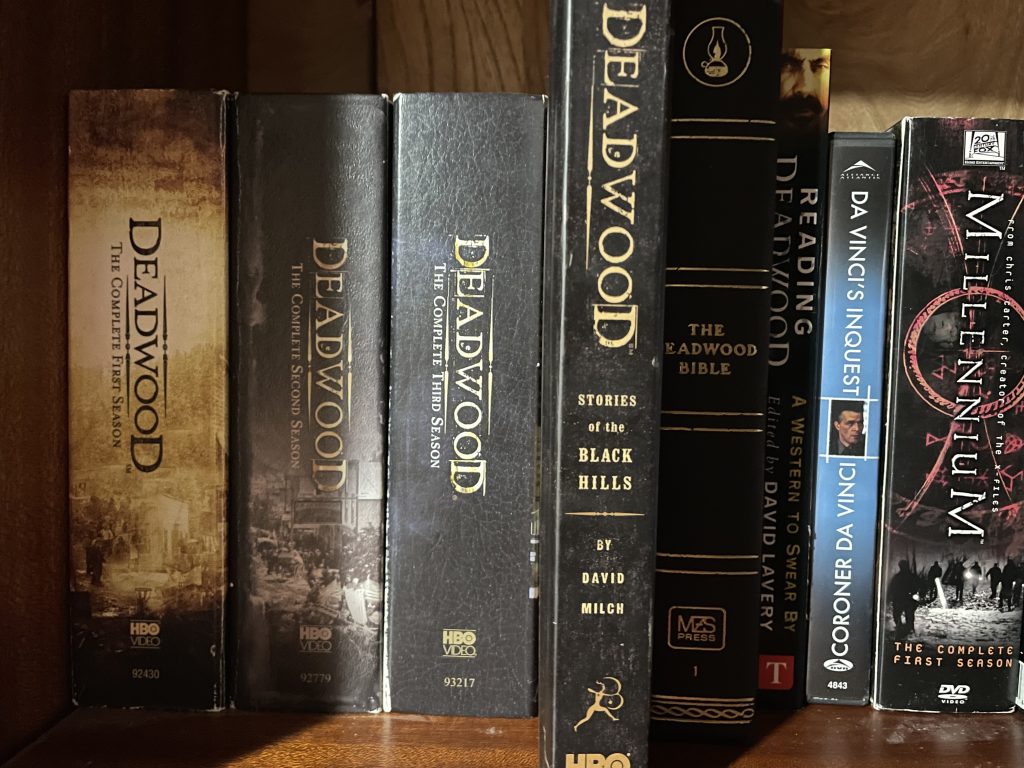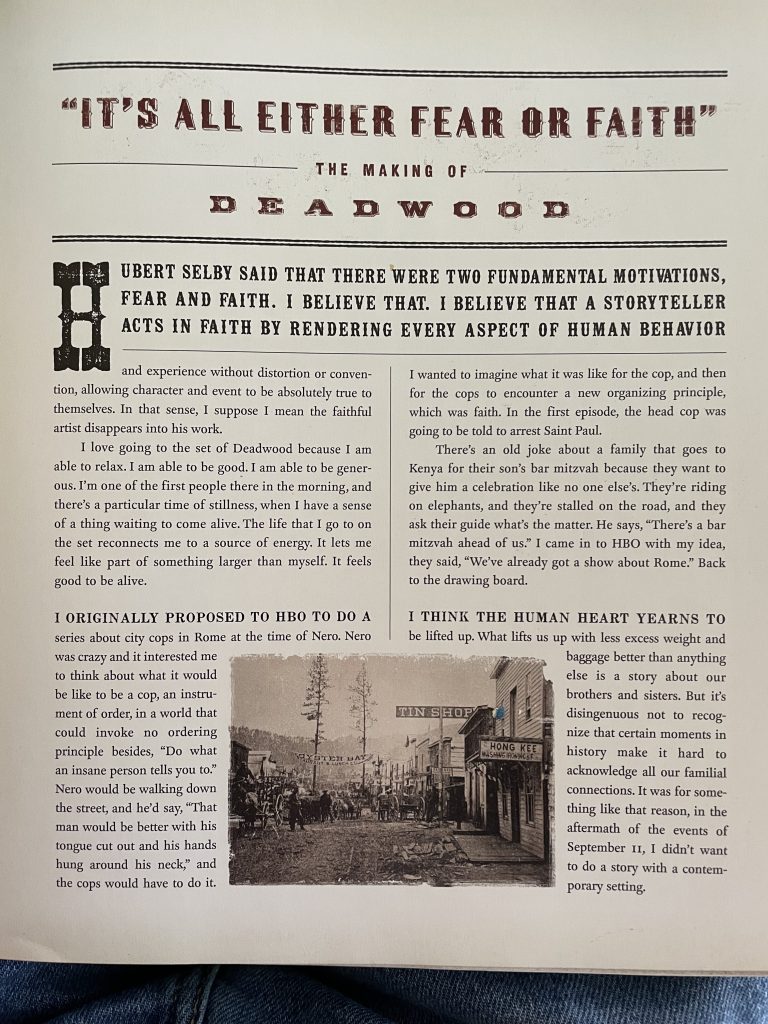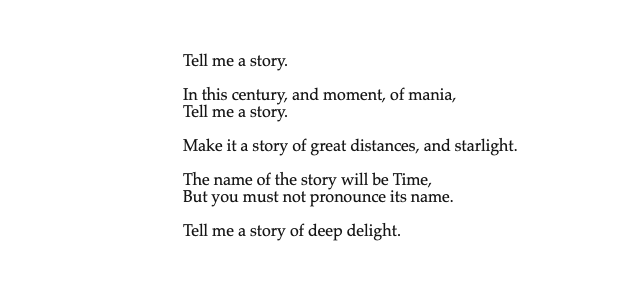It’s safe to say that, as of this moment, Deadwood stands alone atop all the other TV shows I have enjoyed. Especially in the way that it pulled me into reading more about all of it, whether it is Deadwood: Stories of the Black Hills by David Milch, The Deadwood Bible: A Lie Agreed Upon, created & assembled by Matt Zoller Seitz, or Reading Deadwood: A Western To Swear By, edited by David Lavery.

Take for instance, this tiny reveal by Milch in the opening of Deadwood: Stories of the Black Hills, about how he was originally proposing to HBO to do a different series – and oh, what a series it would have been. It makes me yearn so much for this particular “what if” that it borders on the indescribable.

And it is the distinction of Deadwood that it drew me in beyond reading about the show itself. I found myself going deeper into how Deadwood’s creator, David Milch, was himself influenced in his life. In short order, you come to perceive a sense of how the words of his mentor, Robert Penn Warren, found their way through David’s mind and heart, and were then lived in and absorbed so that Milch’s own words could in turn find their way through the minds and hearts of others. I’ve never seen such a clear instance of a mentor’s work being so specifically and regularly referred to by a student as it is in Milch’s returning to the astoundingly perfect second half of Warren’s poem Tell Me A Story over the decades.

I look forward to reading Milch’s memoir, Life’s Work, this winter should I be so lucky as to get a copy.